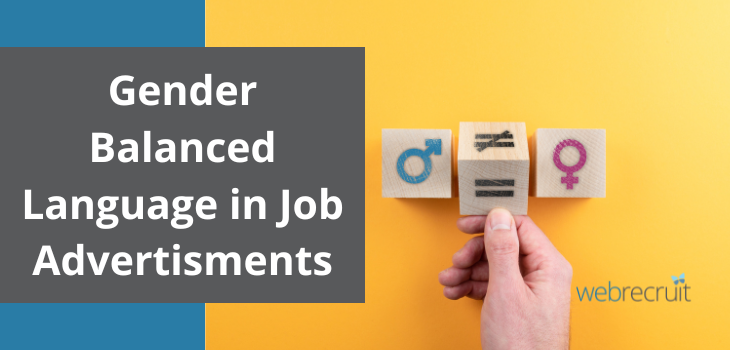Equality, Diversity and Inclusion (EDI) in the workplace begins with your job advertisements, as candidates get a glimpse into the world of your company; the language you use is the key that will open the door to encouraging and improving EDI in your organisation.
Unconscious bias can enter our daily lives without most of us even noticing, whether it’s favouring a candidate because they attended the same university as you or unintentionally using language that could isolate specific individuals. Remember, these instances can lead to fewer job applicants and a less diverse workforce in many organisations!
The good news is that there are many ways to implement EDI encouraging language into your job advertisements whilst ensuring you are staying away from certain language that could inadvertently discourage applicants. Read on to find specific examples and solutions to common occurrences in the job advertisement marketplace.
The Use of Pronouns
An easy one that can be employed throughout your adverts is using ‘you’ to address candidates, as opposed to ‘he’ or ‘she’, therefore, making it more gender-inclusive. Using ‘you’ instead of ‘they’ also directly addresses readers, increasing engagement and allowing them to imagine themselves in the role.
Offering Flexible Hours and Locations
Having been through numerous lockdowns over the last two years, many people have spent much more time in their homes, either working from home or unable to work at all. Therefore, it is key to be clear in your adverts if there are options for hybrid or home working, as well as possibilities of flexibility around the number of hours worked and when they are worked. This will help numerous applicants, such as parents or carers, for example, feel secure in the knowledge of their available options.
Accessible Language
A sizable area that can often be overlooked is the inclusivity surrounding individuals who may require adverts to be written, formatted or displayed in a certain way, such as those with dyslexia or are neurodivergent. There are a multitude of ways that you can make your adverts easily accessible in this way.
First, using an active rather than passive voice creates a shorter, much easier to read sentence. For example, saying ‘A candidate is applying for the role’, as opposed to saying, ‘The role is being applied for by the candidate’.
Short sentences and paragraphs, as well as bullet points, will also be beneficial as these allow the advert to become spaced out and split into easy-to-read sections, instead of having dense paragraphs of text. Other, seemingly small, changes that can also be of immense benefit are avoiding double negatives and abbreviations of words.
Is your Essential Criteria Essential?
A frequently forgotten point is the importance of keeping essential criteria short and to the point. An extensive list of, potentially unnecessary, criteria could put many applicants off (who otherwise might have been perfect for the role!) if they feel that their abilities do not cover most, if not all of them. Therefore, it is crucial to be sure of what skills and experience are truly needed for someone to be able to succeed in the role (whilst keeping in mind what can be provided as training instead).
So, what next?
Overall, EDI encouraging language must be embedded throughout job adverts, not just used as a legal compliance statement at the end of an advert. This could lead candidates to believe that a company’s attitude towards EDI is mere tokenism, a box being checked. EDI is essential to our community and the success of every organisation.
At Webrecruit, we have specialist copywriting and proofreading services to ensure that you are maximising your talent pool. We will write your job adverts in an EDI-encouraging way, proofread and/or post them on a whole host of generalist and EDI-focused job boards and more… the choice is yours! Get in touch today to find out more.






